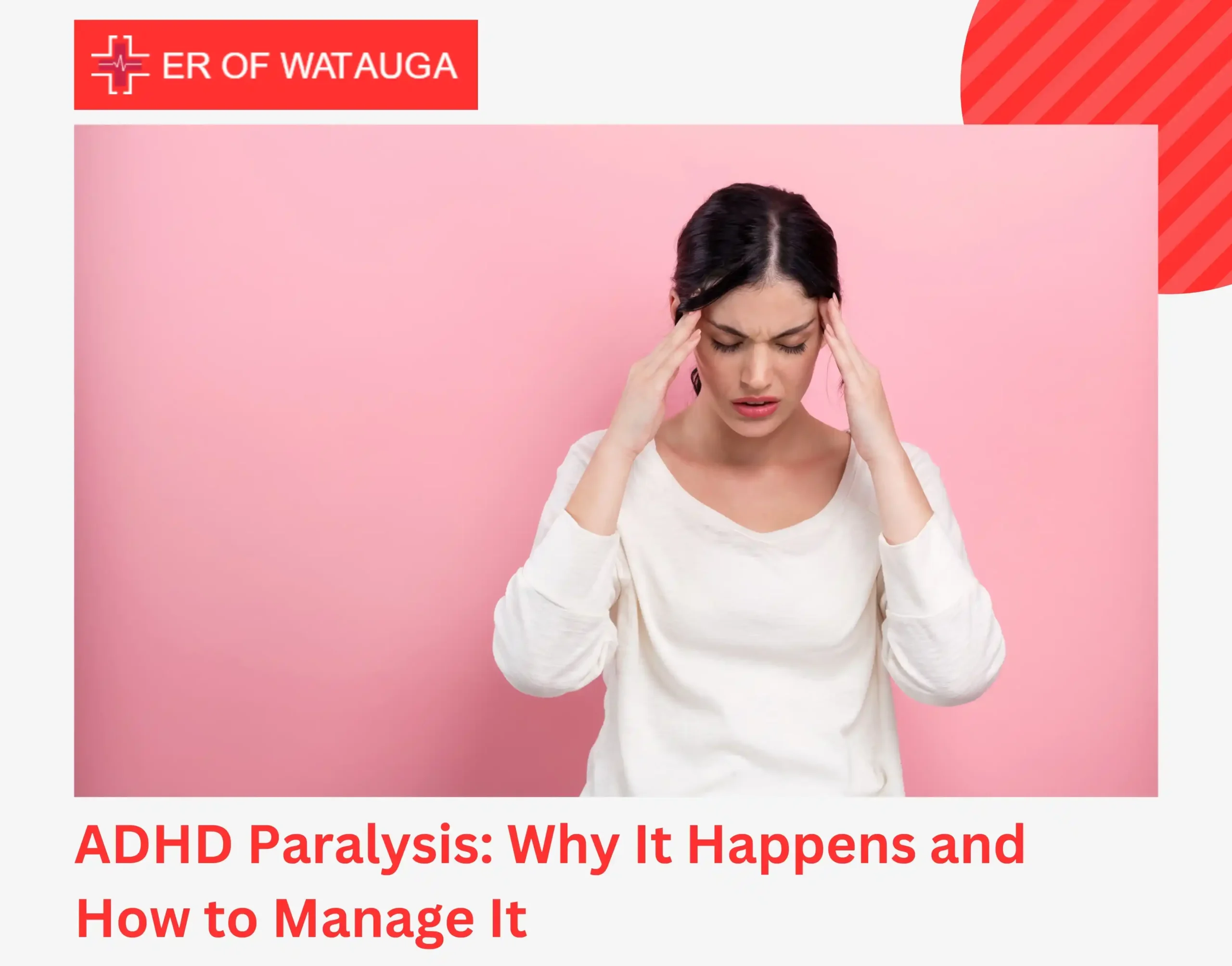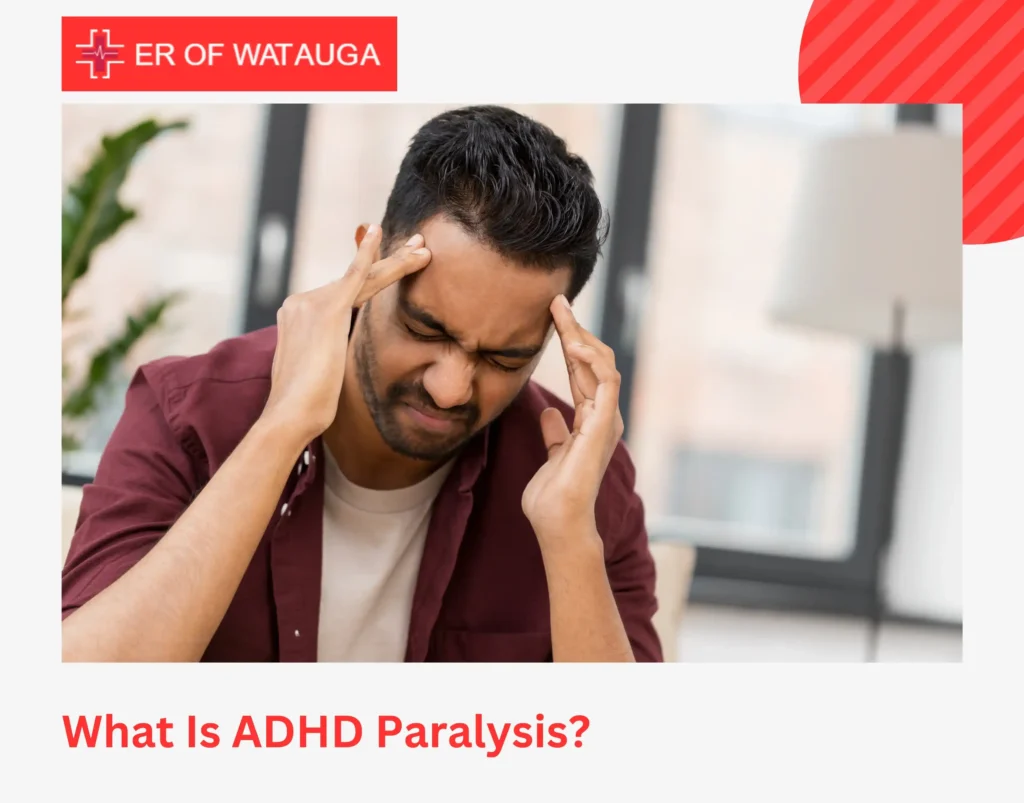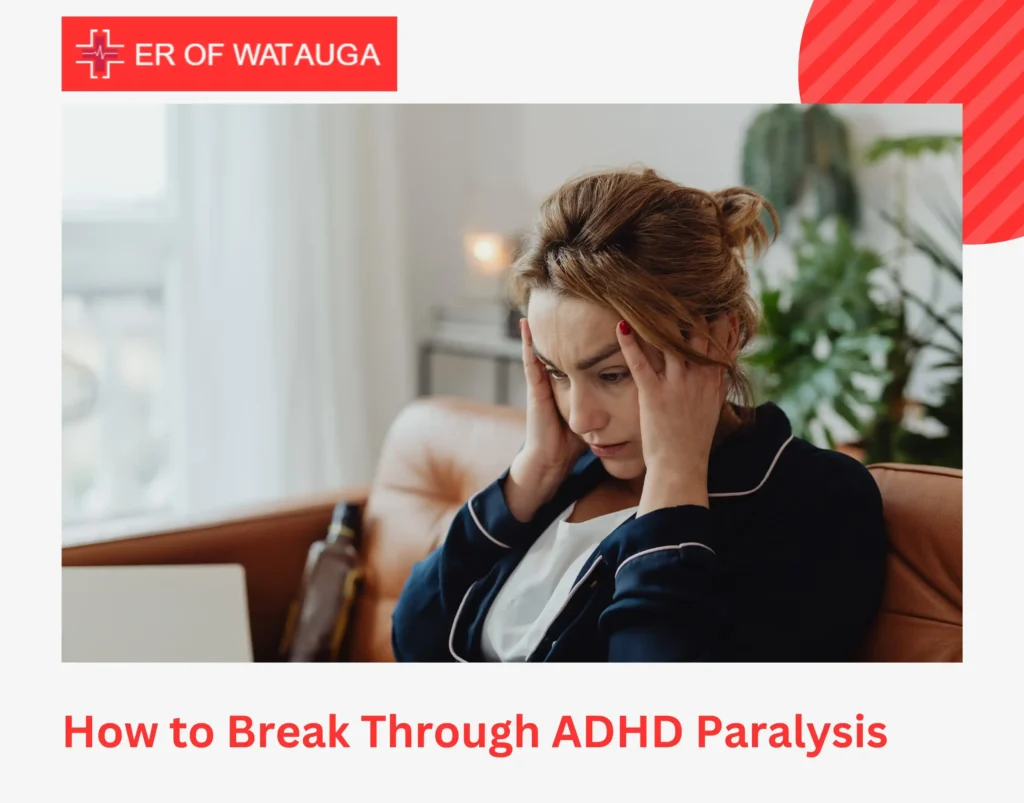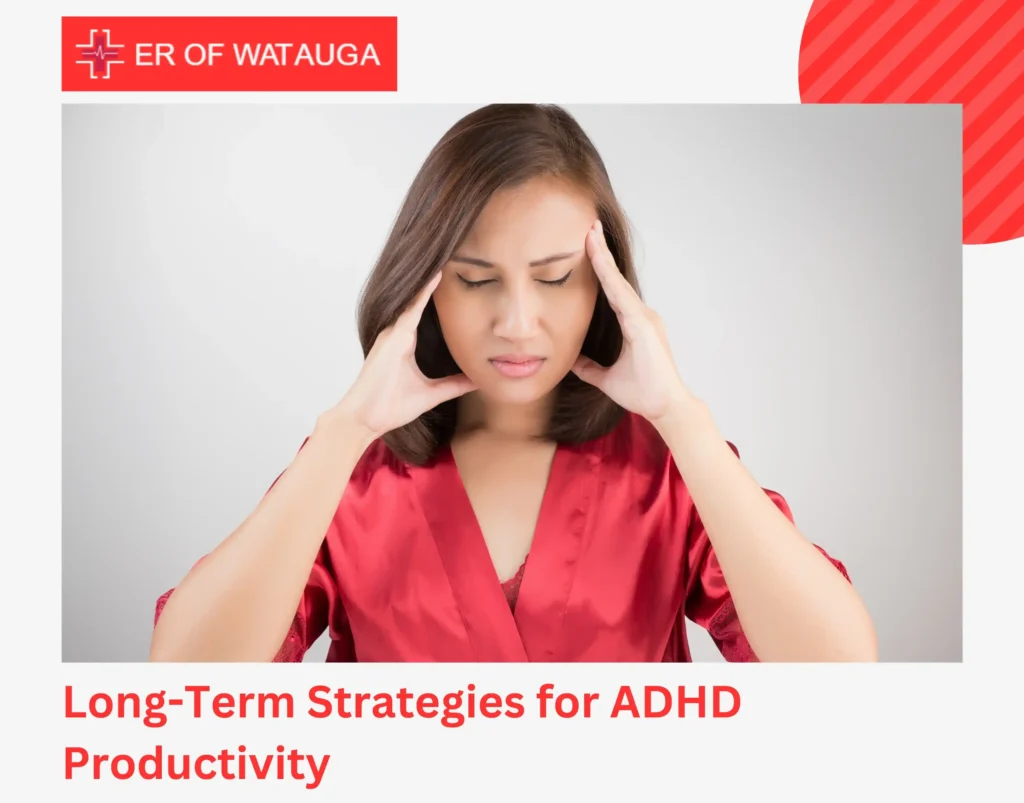Have you ever had a to-do list in front of you but felt completely stuck? You want to get things done, but no matter how hard you try, you just can’t seem to start. If this sounds familiar, you might be experiencing something called ADHD paralysis.
ADHD paralysis happens when your brain feels overwhelmed, and instead of taking action, it freezes. Even simple tasks like answering a message or starting a chore can feel impossible.
So, let’s explore what ADHD paralysis really is, why it happens, and how you can gently guide yourself out of it.
What Is ADHD Paralysis?
ADHA paralysis is when you want to do something, but can’t get started. It is like your brain hitting the brakes, and no matter how hard you try, you feel stuck.
This can happen with everyday tasks, such as doing laundry, writing an email, or even deciding what to eat. You may look at the task, feel overwhelmed, and end up doing nothing at all. Some people refer to it as “shutting down” or “freezing.”
This kind of mental block is common in people with ADHD. It happens because the brain struggles to plan, organize, or shift between tasks.
Why Does ADHD Paralysis Happen?
ADHD paralysis doesn’t happen because you feel lazy. Instead, it happens when your brain receives different signals while you want to do a different task. This lack of signals causes your brain to freeze. Let’s examine the most common reasons behind this sense of being stuck.
1. Your Brain Has Trouble Starting Tasks
One of the major causes of ADHD paralysis is your brain’s inability to initiate a task. If you have ADHD, your first step might feel extra heavy, even if that is a simple task.
2. Too Many Options Can Overload the Brain
When there are numerous things to do or too many choices to make, it can overwhelm the brain. Instead of picking one thing and starting, the brain freezes and avoids everything. This is common when someone has a long to-do list or doesn’t know which task is the most important.
3. Fear of Failing or Doing It Wrong
Sometimes, ADHD paralysis is caused by perfectionism or fear of failure. You might feel pressure to do a task perfectly or worry about making a mistake. That fear can be so strong that it stops you from even trying, because trying feels too risky.
4. Emotions Get in the Way
Strong emotions, such as stress, shame, guilt, or frustration, can build up and block action. For example, if you’ve put something off for a while, you might feel guilty, and that guilt makes it even harder to start.
5. Low Mental Energy or Brain Fatigue
ADHD makes it harder for the brain to manage energy and focus. After a long day or during moments of low motivation, the brain might simply “shut down.” This isn’t laziness, it’s mental exhaustion.
6. Trouble Switching Between Tasks
People with ADHD often find it hard to switch from one task to another, especially if the first one was intense or enjoyable.
How to Break Through ADHD Paralysis
The good news is that you can manage ADHD paralysis, and you don’t have to fix everything at once. The key is to use small, simple strategies that gently push your brain into motion. Here are some easy ways to break through it.
- Break Tasks into Tiny Steps: You might not know, but your ADHD comes because a task feels too big. Instead of “clean the kitchen,” try “put one dish in the sink” or “wipe one counter.” The goal isn’t to finish, it’s just to start.
- Try the 5-Minute Rule: Give yourself the ultimatum of 5 minutes. Set a timer. This lowers the pressure and helps your brain get moving.
- Use Body Doubling: This means doing tasks while someone else is around. Having someone nearby can help your brain stay focused and alleviate the feeling of being stuck.
- Remove the Pressure to Be Perfect: A lot of it is stimulated by doing things “the right way.” Remind yourself that you only need to get things done, even if they are imperfect.
- Create Visual Cues and Routines: Sticky notes, checklists, and color-coded planners. These small tools can help your brain stay on track.
- Change Your Environment: Sometimes a simple change like moving to a different room, playing music, or adjusting lighting can help shift your focus.
- Be Kind to Yourself: ADHD paralysis can bring a lot of guilt and frustration. But feeling low about yourself only makes it worse. Therefore, speak gently to yourself.
Long-Term Strategies for ADHD Productivity
Overcoming ADHD paralysis in the moment is helpful, but managing it long-term is crucial. Consider the following strategies to have a more productive and balanced life.
- Start and end your day the same way to create structure.
- Try small habits like drinking water, making a 5-minute plan, and setting a timer.
- Utilize tools such as digital calendars, checklists, reminders, or planning apps.
- Do harder tasks during your high-energy times and easier ones later.
- Give yourself small rewards after completing tasks, such as a snack or a break.
- Don’t feel bad about saying “no” when you’re overloaded.
- Protect your time and focus on fewer things to avoid burnout.
- If ADHD feels unmanageable, talk to a therapist, coach, or doctor.
You’re Not Lazy, It’s ADHD
If you’re experiencing ADHD, don’t feel ashamed, since many people go through it. There are ways to manage it. Start small. Try the strategies from this guide and see what helps you feel more in control. Perhaps it’s breaking tasks into smaller steps, using a timer, or asking someone to act as a body double with you. Whatever it is, track what works and celebrate the progress, no matter how small.
Frequently Asked Questions
1. What is ADHD paralysis, and is it real?
Yes, ADHD paralysis is real. It happens when your brain feels stuck and you can’t start or finish tasks, even when you want to.
2. How is ADHD paralysis different from procrastination?
Procrastination typically involves intentionally delaying tasks while ADHD paralysis feels more like you can’t move forward, even if you’re trying. It’s more about being mentally blocked than choosing to delay.
3. Can ADHD paralysis happen even with easy tasks?
Yes, even simple things, like replying to a text or making a phone call, can feel overwhelming. The task itself might be small, but the mental block behind it can still be huge.
4. Can ADHD paralysis affect work or school?
Yes, ADHD paralysis can make deadlines harder to meet, cause last-minute stress, and affect confidence. But with the right strategies and support, it can be managed successfully.









